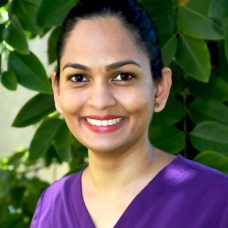Challenges in accessing Special Care Dentistry

Oral health is linked to general health and has even assisted in diagnoses of systemic diseases based on accompanying oral signs. Special Care Dentistry is a specialized field that provides comprehensive dental care for persons with disabilities. Although the dental treatment remains the same, the management of the patient changes based on their specific disability. Oral health, like general health, can be affected by social determinants of health. Social determinants directly and disproportionately affect persons with special needs one of these determinants is transport. In a recent interview, I conducted, a self-advocate who is deaf described her experience attempting to receive dental care and explained how difficult it is to write to both the public transportation personnel and the dentist since neither of them knew sign language. Another participant spoke of the lack of preparedness of dental personnel to accommodate persons with disabilities which often led to them having to seek specialized care on another day since they would be turned away without any examination, due to their special needs.
I am passionate about education in the field of Special Care Dentistry because this vulnerable population is often overlooked as a priority by local authorities. In my national anthem of Trinidad and Tobago, we speak of equity where we state: here every creed and race find an equal place.” It is my goal, that through dental education, persons with special needs would be examined by any dentist who would attempt to spend the required time necessary to examine the patient and attempt to alleviate their pain before referring them for specialized care.
As a dentist and the first lecturer in Special Needs Dentistry at the University of the West Indies, Trinidad, I appreciate the impetus to improve access to oral care for vulnerable populations. My research focuses on effective strategies for improving oral health care in persons with special needs. Recent research (Balkaran et al., 2022) explored various challenges experienced in the dental care of persons with special needs that my team and I contextualized major areas that reduced access to oral care among health professionals and caregivers.
In this article, the barriers brought to the fore by the healthcare professionals and the caregivers were financial and reduced access to dental care for persons with special needs. The way out of these barriers was through the education of key stakeholders, such as dental and medical healthcare providers and caregivers. Policy changes and, advocacy at a governmental level, as well as prevention strategies, were also suggested (Balkaran et al., 2022). This study underscores the barriers to equitable dental care in this vulnerable population. The intersectionality between social determinants and the stigma attached to persons with disabilities was highlighted during discussions on the barriers to accessing dental care.
Ramaa Balkaran
The writer is a tenured Lecturer at The University of the West Indies Trinidad in Special Needs Dentistry. Currently pursuing her PhD at the University of Turku, where she is evaluating effective strategies for improving the oral health care in persons with special needs. Her research interests focus on general health and oral disease, with a strong emphasis on promoting oral health and preventing disease, particularly amongst medically compromised groups and those with special needs.
Reference:
- Balkaran, T. Esnard, M. Perry, J.I Virtanen (2022). Challenges experienced in the dental care of persons with special needs: a qualitative study among health professionals and caregivers
- BMC Oral Health 22 (1), 116 https://bmcoralhealth.biomedcentral.com/articles/10.1186/s12903-022-02153-x